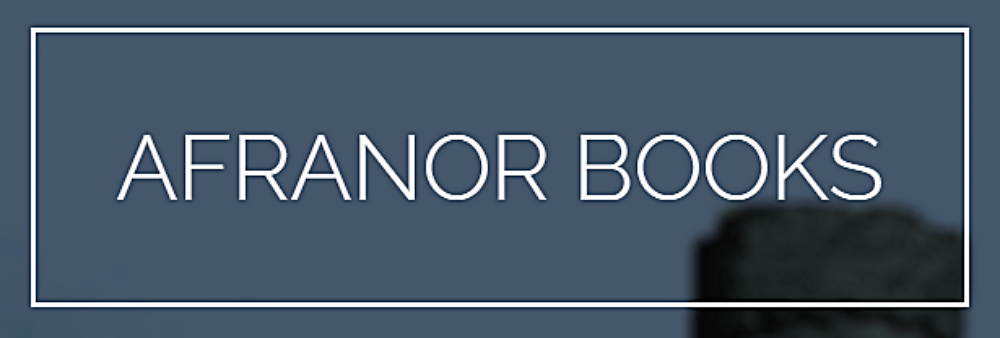He looked up and down the street. He settled on a bar down on the next corner. It was called El Águila.Somewhat belatedly, I received a lovely gift a few weeks ago. The occasion was either Christmas or my birthday or both—the two are kind of synonymous in my case—and when I say belated, I don’t just mean it was meant for this past December. It was ordered by my nieces and nephew a year or two before that. I forget which because, though I had been notified way back when it was ordered, there was subsequently an extended delay in the shipping and I had long since forgotten about it. It was designed and produced as a Kickstarter project, and as a I know from my own experience, those things can often take longer, sometimes much longer, than advertised.
“I’ll meet you in front of that bar in the morning. But not too early. Say, ten o’clock.”
—Maximilian and Carlotta Are Dead, chapter 15 (“A Night at the Plaza”)
It was thus a complete surprise when my gift showed up unexpectedly at my door. Fortunately, seeing the name of the item jarred my memory, and I knew who had sent it. What I couldn’t do was say the item’s name out loud.
The name of this very cool thing is the Author Clock. That doesn’t seem as though it should be so difficult to say, but for the life of me every time I go to enunciate it, it comes out as “Arthur Clarke.” I guess that makes some kind of sense, seeing as how Arthur C. Clark was an author (2001: A Space Odyssey and Childhood’s End prominent among his novels), but it’s still a strange impediment.
The Author Clock was an incredibly thoughtful gift for all kinds of reasons, not least of which is that it must mean that my brother’s kids actually consider me some kind of writer.
The design is simple. It resembles a tablet like an iPad with a white, non-backlit screen framed in tasteful wood. Once set up using your Wi‑Fi-connected phone or other device, it displays every 60 seconds a different literary quote which includes the current time. The quotes have been crowd-sourced, and they’ve managed to find at least one for each of the 1,440 minutes in a day. The battery can be recharged through its USB‑C, and the clock can be set to update at less frequent intervals in order to prolong times between charging. (Minute-by-minute updates so far in my experience require a recharge every few days.)
The main disadvantage is that, if you have it sitting on your desk, it can be hard to get any work done because you just want to sit there and watch for the next quote. What book will it be from? Will they have really found a passage mentioning 3:57 a.m.? Who knew so many novels included such specific times?
My fascination with the clock has got me wondering about times mentioned in my own books. How often in my six novels had I mentioned a specific time? I did a quick check.
Sure enough, in the very first chapter of my very first book (Maximilian and Carlotta Are Dead) when Lonnie McKay shows up to drag Dallas Green off on an ill-advised adventure in Mexico…
He didn’t kill the engine. He just sat out there revving it up. He knew that I would hear it and go on out there. I pulled on a tee-shirt and went out. It was almost ten o’clock and time that I should be getting to bed. I was kind of pissed at him for showing up this late when he knew I had to work in the morning.Most of my mentions of time tend to be on the hour and thus probably not highly prized by the Author Clock folks. In a later chapter Dallas does some nervous clock watching at a bar called El Águila waiting for Lonnie to come back, but he tends to check the time on the hour. Dallas often happens to be waiting for people. In the sequel Lautaro’s Spear, he finds himself waiting for Valérie Destandau…
When he returned with my drink, I looked at my watch again. She was now twenty minutes late. I pulled out the scrap of paper and double-checked the name of the place and the address. She had also written the time. It said “20.00” which I was pretty sure meant eight o’clock.The fantasy novels mention specific times much less than the Dallas books, although there are at least a couple references to “the stroke of midnight.” And there’s this bit from Last of the Tuath Dé in which Koschei tells young Peter a story about the plot to kill the Mad Monk…
“So that was when Prince Felix and the others decided the Mad Monk must be stopped. They invited him to the Moika Palace for tea and cakes at midnight. That’s in St. Petersburg, you know. The cakes had been laced with cyanide. As was the Madeira wine. In case the cakes didn’t do the job.”So this is one more thing to be thinking about as I write. Maybe if I include lots of obscure time references, I will get mentioned by Arthur, I mean, the Author Clock.



No comments:
Post a Comment